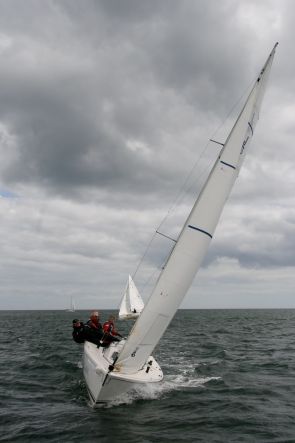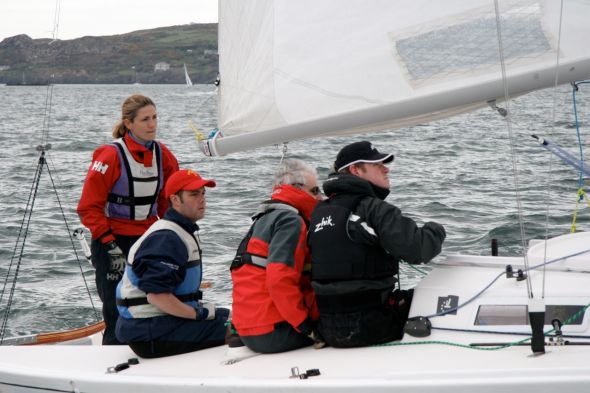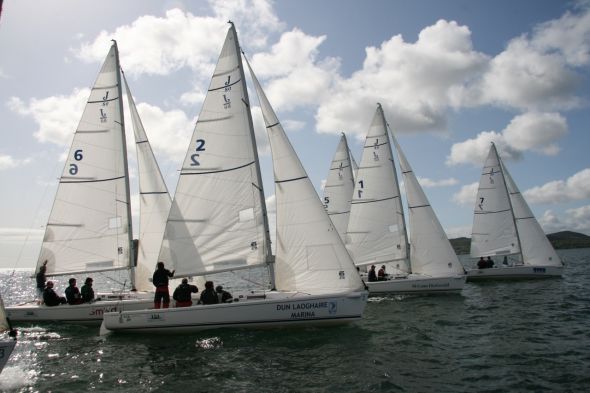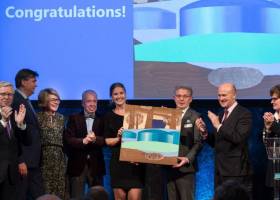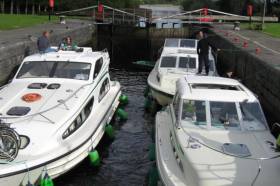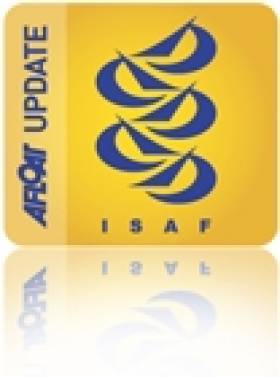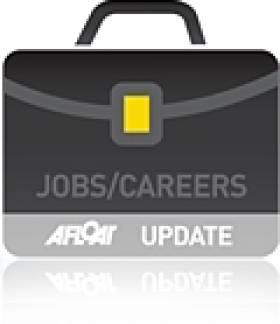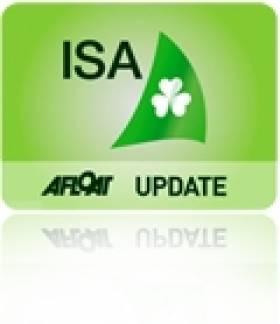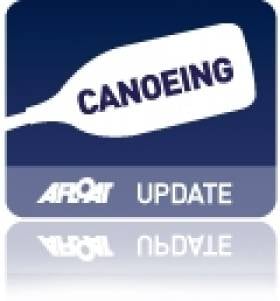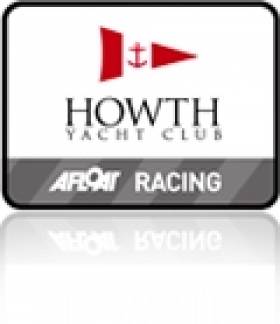Displaying items by tag: social media
ESPO Award 2019: Is Your Port Successful in Reaching Out in a Direct & Transparent Way to Port Citizens?
#ports - The theme of this year's European Sea Ports Organisation (ESPO) Award on Societal Integration of Ports is “Transparency and the role of social media in reaching out to local community”.
The ESPO Award 2019 will go to the port authority that has developed a successful strategy to reach out to the local community and is succeeding in directly communicating with the port citizens. Using social media as a new way of communication and demonstrating a high level of transparency about operational achievements, future strategies and environmental challenges and performance is becoming increasingly important for European ports who can only function and further develop if they receive the licence to operate from the local citizens.
Direct and transparent communication must make it possible for every citizen to follow the port in its successes and challenges. Moreover, it allows the dialogue with the citizens and, ideally, makes every citizen an ambassador for its port.
The ESPO Award was established in 2009 to promote innovative projects of port authorities that improve societal integration of ports, especially with the city or wider community in which they are located. In this way, the Award aims to stimulate the sustainable development of European ports and their cities.
Project submissions have to reach the ESPO secretariat by Friday 28 June 2019 at the latest. The application form and the terms of reference are available on the ESPO Website.
The 11th ESPO Award will be officially handed out during an Award Ceremony and Dinner, which will take place in November in Brussels.
Last year the Port of Rotterdam, was winner of the ESPO Award and three years previously Dublin Port took the honour.
Waterways Ireland Website Launches New Corporate Social Media
#InlandWaters - This week Waterways Ireland has launched new corporate pages on Facebook and Twitter.
The social media accounts draw together all the messages around marine notices, job vacancies, construction works, corporate events and public consultations into a single location where interested parties can more easily find the information they need.
Waterways Ireland Notifications is the page name for both Facebook and Twitter.
All the posts will link back to the Waterways Ireland website where further detail, application forms, and options to participate will be more fully explained.
The current Waterways Ireland Facebook and Twitter pages “will continue to promote the enjoyment, scenic beauty, leisure travel and activities that form the pre-eminent experiences that bring waterway communities to life,” the cross-border agency says.
Race Officials Can Be 'Friends' But Not 'Fans', Say New ISAF Social Media Guidelines
#isaf – Race officials in charge of yacht races can be Facebook 'friends' with competitors but not 'fans' of their teams or organisations, that's the advice given in new guidelines issuedto race officers by the International Sailing Federation (ISAF). The new guidelines are downloadable below.
Race officials also must be aware that information they put on their profile during an event must not give competitors who are Facebook friends an advantage or access to information which others do not have.
With the increasing use of new communication tools on the web such as blogs, social networks, call and text message services, it is necessary for ISAF Race Officials to consider how their own use of such tools interacts with their role as an official, according to the new guidelines.
Restricting the use of social media is not designed to inhibit freedom of speech or rights to privacy, but it is inevitable that appointment as a race official means the official must limit their use of such tools in order to comply with the ir duties as an official.
ISAF's goal is to provide guidelines to help ra ce officials balance these concepts in order to avoid potentially embarrassing situations for the race official and for ISAF.
Royal Cork YC Seeks Membership Administrator
#JOBS & CAREERS - The Royal Cork Yacht Club is currently recruiting for a 'Membership Administrator' with responsibility for overseeing the club's front of house operations and administering its social media presence.
Based at Crosshaven in Co Cork, the club's ideal candidate will be capable exhibiting personal initiative in dealing with club members, event competitors, suppliers and the general public.
Coupled to significant interpersonal and social skills, they will also possess advanced levels of computer literacy and be able to demonstrate experience and proficiency in website management, updating weblogs, managing Facebook pages and Twitter accounts.
The closing date for receipt of applications is next Friday 31 August 2012. Full details on this position are available HERE.
#ISA NEWS - The Irish Sailing Association's Olympic Department is inviting tenders for photographic services and social media content for the Irish sailing team at the Sail for Gold Regatta in Weymouth from 4-9 June.
The tender requires attendance at Sail for Gold from Wednesday 6 to Saturday 9 June inclusive.
The photography portion involves daily coverage of Irish sailors racing with a target of 6-10 images per sailor (schedule to be agreed with support team dependant on campaign performance and availability of media boats), plus headshots of the squad and support teams in team clothing, and group shots with and without support teams.
Social media content will involve daily pre-race audio and video with the performance director; daily audio/video with sailors from the media zone; and a micro documentary (3 minutes max) on pieces of interest from an Irish perspective.
Applications for this tender should be emailed to [email protected] by the closing date tomorrow, Friday 13 April 2012. A decision will be made before 20 April to allow time for accreditation and registration for media boats.
Full details on requirements and details of rights and pricing are available on the ISA website HERE.
Shooter Nears the Finish Line in Solo Kayak Challenge
Elaine 'Shooter' Alexander is set for hero’s welcome this week as she becomes the first woman from Northern Ireland to circumnavigate the island of Ireland by kayak.
The solo paddler is expected to reach the finish line at County Antrim Yacht Club on Wednesday after her 70-plus-day test of endurance.
Shooter began her epic 1,000-mile voyage on 3 May, facing a tough challenge navigating a coastline of cliffs and headlands, strong tides and brutal weather. She has been storm-bound for a total of 21 days, often only with a small tent for shelter.
When asked what home comfort she was most looking forward to, she simply replied: "A proper toilet and some clean clothes."
Shooter embarked on the challenge to raise funds for SHARE, a charity providing outdoor activity programmes that promote the inclusion of disabled and non-disabled people.
“I expected and had trained for the physical challenge but I don’t think you can ever prepare mentally," she commented.
"It has been a real struggle coping with the repetition of paddling, getting changed into wet clothes and packing up a wet tent every day. Especially on the windy days it has been hard just to push on that extra few miles each day.”
But connecting with fans and supporters through social media made a big difference.
“The Facebook page has really been a lifeline," she said. "There is nothing more motivating than coming off the water after a tough day to read so many supportive and funny comments from well wishers."
See below for a map showing Shooter's live position as she edges closer to the finish line.
HYC use Twitter & Ustream for live event coverage
Howth Yacht Club continue to march ahead as early adopters of new media, streaming details from their HYC Helmsman's Championships in real-time over the web. Using a combination of live tweets from Twitter and streaming vide on UStream (courtesy of Noel Davidson) the club was able to present a live-action sailing feed from their racing area.
10 teams from HYC competed in the HYC Helmsmans Championship. The teams were divided into 2 heats with 5 teams racing on Saturday morning and 5 teams racing on Saturday afternoon. Both heats were hotly contested and 4 teams from each heat progress through to the final on Sunday.
Heat 1 was won by Michael Duffy, followed by Emmet Ryan in 2nd, Scott Flanigan in 3rd, Garrett May in 4th and John Faller in 5th. Heat 2 was won by Laura Dillon, followed by Alistair Kissane in 2nd, Dermot Skehan in 3rd, Paul McMahon in 4th and Jenny O’Leary in 5th.
The top 8 teams progressed through to the finals on Sunday and the final top 3 results were:
1. Laura Dillon and crew
2. Garrett May and crew
3. Emmet Ryan and crew
Dillon successfully defended her title. Full blow-by-blow details from the racecourse are available both on the HYC_Events Twitter stream and Noel Davidson's Ustream channel which houses the video.
